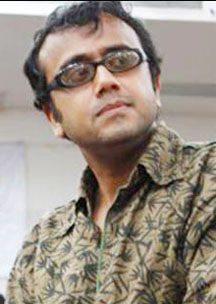MUMBAI, (Reuters) – Political thrillers are not that common in Bollywood but then director and producer Dibakar Banerjee rarely chooses conventional subjects for his films.

Banerjee, 42, explored sexual attitudes in small-town India with “Love Sex aur Dhokha”, “Love, Sex and Betrayal,” in 2010. His latest film puts the spotlight on the dark underbelly of urban development in rapidly modernising India.
The filmmaker spoke to Reuters about his new project, the political film “Shanghai” about the mysterious death of a social activist and the bureaucrat investigating it.
Q: What would you say is the core theme of “Shanghai”?
A: “‘Shanghai’ is about the strength of the individual, because unless and until the individual stands up, there will be no public. The public is very fickle. They change their leaders. Even Gandhi didn’t have a following forever. By the time he finished telling everyone not to partition the country, the partition had happened. The country just wanted a quick-fix solution and they steamrolled all over him.
“Collective will can change – ‘Shanghai’ also shows that – the power of the mob. How the mob can be used to say anything and let it be construed to be in national interest … I’ve spoken to and read so many accounts of those who have been in mobs and robbed and pillaged, and they are as defeated and as forgotten as the victims. ‘Shanghai’ talks about how our lives, more often than not, are controlled by powers that we don’t recognise.”
Q: What’s in the name “Shanghai”?
A: “The core of ‘Shanghai’ is this belief by educated Indians that we have to be like China or we have to beat China or that China is better than us or that China is stronger than us. It’s a pet peeve that the educated middle-class has, and it shows how we are trying to define ourselves by someone else’s yardstick. It’s easy because it gives you a quick-fix solution that we have to be like China, or we don’t have to be like China. But I have travelled extensively in China, and I know that they have their own problems and they are sorting them out in their own way.”
Q: Is it difficult to bring all these ideas and thoughts into a film?
A: “It’s not difficult, it’s impossible. What you say a movie is, is completely different from what the movie is. All the ideas that you think the film is about, it cannot be about them – the film is about the characters in the film and whatever they discover, the audience discovers. So some of it is discovered in a big way, some of it in a small way and some of it not at all. But you have to have those ideas to make the film. It’s like a boxer who, before a bout, also runs or skips. The audience won’t see it, but you need to do it…
“Then you hope that the audience will get it. I know for a fact that Michael Bay has a much larger audience than Woody Allen or the Coen brothers, but that has never stopped the Coen brothers or Allen from making films. I believe that we all have our place in the world, as long as there’s a budget for us.”
Q: Can you segregate the producer personality from the director personality?
A: “You have to. As a director, as a creative person, I am making the film for myself; as a producer, I want it to succeed. To make a successful film, you have to segregate these two personalities. If this one doesn’t work, I may not get the money to make my next film.”
Q: Do you think there’ll be a time when you won’t have to think of budgets and profits and just make what you want?
A: “I’ll be scared. I know there’s no free lunch. If someone gives you money and says do what you want, it means that he doesn’t know what he’s doing and tomorrow it’s going to come back and bite you. I’m very happy if someone tells me that there is very little money, but market forces tell you that you can’t go wrong.”
Q: What’s your next project?





